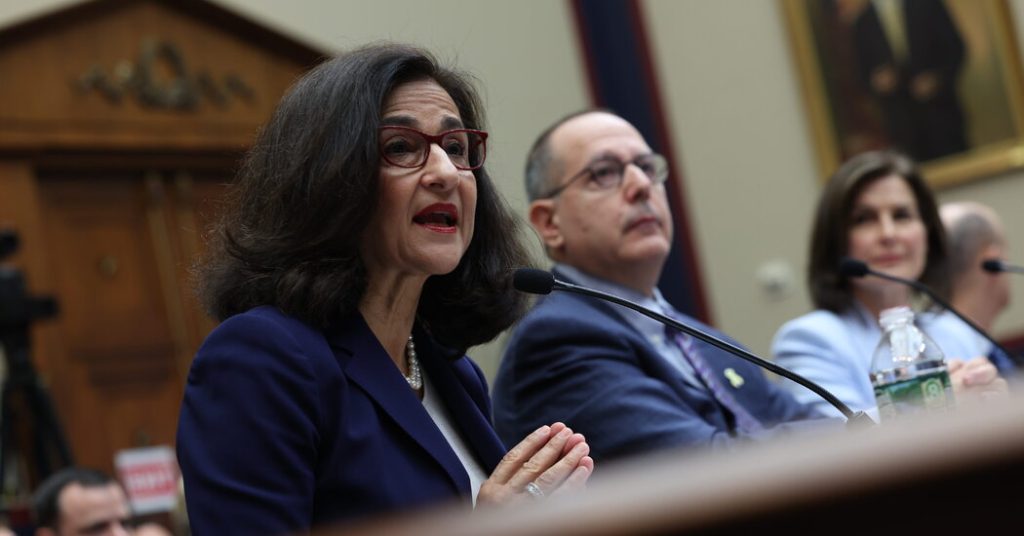In response to a wave of antisemitism following the Israel-Hamas war, the president of Columbia University, Nemat Shafik, disclosed that the university had suspended 15 students and made the decision to ensure a visiting professor would never work at Columbia again. During testimony before a House committee investigating Columbia, Shafik acknowledged that some on campus had used antisemitic language and that certain phrases, like “from the river to the sea,” may warrant discipline. She promised that violations of university policies would have consequences, signaling a shift in the approach to campus protests at Columbia and elsewhere.
Shafik’s efforts to combat antisemitism were met with skepticism by Republicans, but she maintained that the university had a moral crisis and needed to take strong steps to address it. With a large Jewish student population and an active Palestinian protest movement, Columbia has been a focal point for scrutiny. Jewish students reported verbal and physical harassment, while protestors clashed with administrators over demonstration policies. Shafik’s aligning with House Republicans prompted criticism on campus, with some accusing her of being coerced into taking actions that could restrict academic freedom.
During the hearing, Shafik highlighted disciplinary actions against student groups and faculty members who had violated university policies in relation to the Israel-Hamas war. She revealed that five faculty members had been removed from the classroom or dismissed for comments surrounding the conflict. Specific attention was given to a visiting professor who expressed support for Hamas, and a tenured professor who made controversial comments about an attack led by Hamas. Shafik faced questions about potentially removing faculty from leadership positions, indicating that the university would take action against those who crossed the line into antisemitism.
The hearing also delved into broader issues of academic freedom and political controversy surrounding the investigation of alleged antisemitism at elite universities like Columbia. Democrats accused Republicans of trying to weaponize the situation for political gain, while Republicans fact-checked Shafik’s claims and challenged the effectiveness of the university’s disciplinary actions. Despite assurances from Shafik and other Columbia leaders, some remained unconvinced that enough was being done to address the issues of antisemitism on campus and ensure the protection of Jewish students.
The discussion also touched on the broader context of bias on college campuses, prompting Democrats and Republicans to clash over the focus of the investigation and the perceived targeting of specific groups within academia. Representative Ilhan Omar raised concerns about the treatment of students involved in Palestinian activism and facing anti-Arab sentiment. The hearing highlighted the complexities of addressing issues of bias and discrimination on college campuses, and the challenges that universities face in navigating political pressure from lawmakers and ensuring a safe and inclusive environment for all students.
In conclusion, the hearing underscored the delicate balance that universities like Columbia must strike between upholding principles of free speech and combating discrimination and hate speech. Shafik’s testimony revealed the challenges faced by academic institutions in responding to political controversies and aligning with government expectations while maintaining academic integrity. The exchange between committee members, university officials, and advocacy groups highlighted the ongoing debates around academic freedom, campus activism, and the responsibilities of universities in addressing complex social issues.


